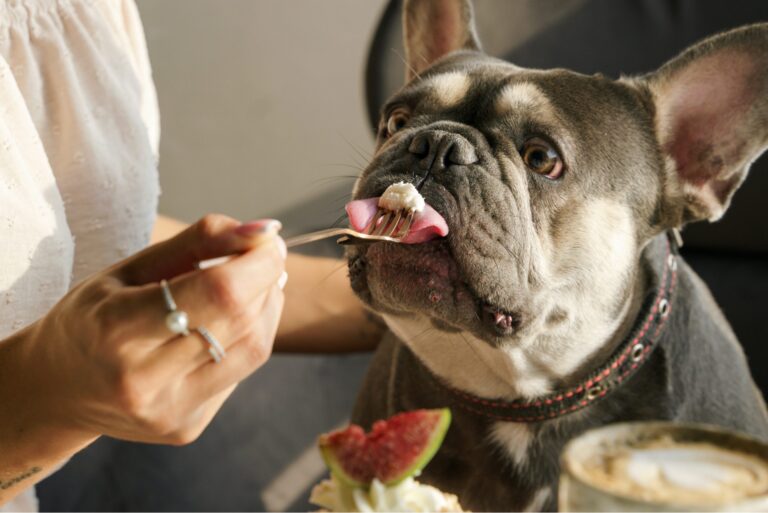Basic Nutrition Guide for Dogs: Giving Your Companion the Right Start
Whether you’re a first-time pet parent or a seasoned dog lover looking to fine-tune your furry friend’s diet, understanding the fundamentals of canine nutrition is essential.
Let’s break it down.
Why Nutrition Matters
Just like humans, dogs require a well-balanced diet to thrive. The right nutrition can help prevent chronic diseases, maintain energy levels, support a healthy coat and skin, and ensure your dog’s organs and muscles function optimally.
While there’s an ongoing debate about kibble, fresh food, and raw diets—which we’ll cover in a separate blog—this guide focuses on the basic building blocks of a healthy canine diet, regardless of the format.
- Calories: Understanding Your Dog’s Daily Needs
To calculate your dog’s minimum daily caloric requirement, use this simple formula:
- [Bodyweight (kg) × 30] + 70
- For a 20 kg dog: (20 × 30) + 70 = 670 kcal/day
This is a baseline. Real needs vary based on:
– Age (puppies need more)
– Activity level
– Breed and metabolism
– Health conditions
– Puppies, pregnant or lactating dogs, and high-energy breeds may need 2–3 times this amount, while senior or sedentary dogs may require less.
- Protein: The Foundation of a Healthy Diet
Protein is vital in muscle development, immune function, and cell repair. Dogs are omnivores with a strong preference for meat, making protein the cornerstone of their diet.
- How Much Protein Does Your Dog Need?
The general guideline is: Minimum 2–3 grams of protein per kilogram of body weight per day. A 20 kg dog, for example, needs at least 40–60 grams of high-quality protein daily. And since protein provides 4 kcal per gram, that translates to 160–240 calories from protein. Studies published in the Journal of Animal Physiology and Animal Nutrition and the American Journal of Veterinary Research support these figures, especially for active and growing dogs.
- Sources of Good-Quality Protein
Non-vegetarian: Chicken breast, lamb, egg whites, fish, chicken liver;
Vegetarian: Cottage cheese (paneer), tofu/soy (occasionally), red lentils (lal masoor dal)
- Healthy Fats: For Skin, Coat & Brain Health
Fat is the most energy-dense nutrient, providing 9 kcal per gram. It plays an essential role in:
- Hormone production
- Skin and coat health
- Brain and heart function
- Reducing inflammation
- Absorbing fat-soluble vitamins (A, D, E, K)
The key is to choose healthy fats and balance them properly.
- Sources of Healthy Fats
Non-veg: Fish oil (rich in Omega-3s), chicken/lamb fat (in moderation), organ meats like liver
Plant-based: Coconut oil, flaxseed oil
- Daily Requirement
Dogs require 1.3–1.5 grams of fat per kg of body weight/day.
For a 20 kg dog, that’s 26–30 grams of fat daily, contributing 234–270 kcal from fat alone.
- Carbohydrates: The Misunderstood Macronutrient
There’s a myth that dogs can’t digest carbs. Over time, dogs have evolved alongside humans and developed enzymes to digest carbohydrates efficiently. Carbs provide energy, fiber, and essential nutrients; we just need to ensure that these don’t dominate the diet.
Best Sources of Carbs
These provide fiber for digestion and slow-release energy.
– Whole grains: Brown rice, oats, quinoa
– Vegetables: Sweet potato, pumpkin, bottle gourd, carrots
Avoid gluten-rich grains like wheat and corn, especially if your dog shows signs of sensitivity.
How Much Carbohydrate Does a Dog Need?
Unlike protein and fat, there’s no strict minimum requirement for carbs. Instead, carbohydrates should fill in the remaining calorie needs after protein and fat have been accounted for.
Let’s revisit our 20 kg dog example with a 670 kcal/day requirement:
– Protein: 50 g (2.5 g/kg) × 4 kcal = 200 kcal
– Fat: 30 g (1.5 g/kg) × 9 kcal = 270 kcal
That’s 470 kcal from protein and fat combined.
The remaining 200 kcal can come from carbohydrates, which provide ~4 kcal per gram.
So, your dog would need approximately 50 grams of carbohydrates per day.
- Hydration: Often Overlooked but Crucial
Water is just as important as food. Dehydration can lead to fatigue, kidney issues, and other serious health problems. Ensure your dog always has access to clean, fresh water.
Dogs also get hydration from:
– Wet food
– Bone broth
– Dog-safe fruits and vegetables like cucumber, watermelon, and bottle gourd
Summary
Your dog’s nutrition is the foundation of their overall well-being. You don’t have to be a canine nutritionist, but a basic understanding goes a long way.
Here’s a quick recap:
✅ Prioritize protein (2–3 g/kg of body weight)
✅ Include healthy fats like fish oil and coconut oil (1.3–1.5 g/kg)
✅ Calculate caloric needs using body weight and adjust for activity
✅ Don’t fear carbs—just choose high-quality, digestible ones
✅ Keep your dog well hydrated, always
In upcoming blogs, we’ll dive into kibble vs. fresh vs. raw diets, how to read pet food labels, and personalized nutrition based on life stage or health goals.
Your dog gives you their best every day. Let’s return the favor, starting with their bowl.
Related Articles
What do you think?
Related Articles

Why Commercial Kibble is Unhealthy for Dogs
Commercial kibble may seem like a convenient option, but it often lacks the essential qualities needed to keep your dog healthy. Here’s why: Low-Quality Ingredients

Why Freshly Cooked Food is Better Than Commercial Retort Packaged Food
Higher Nutritional Value Fresh Ingredients: Freshly cooked meals are made using whole, natural ingredients, retaining more nutrients compared to the highly processed components of retort-packaged